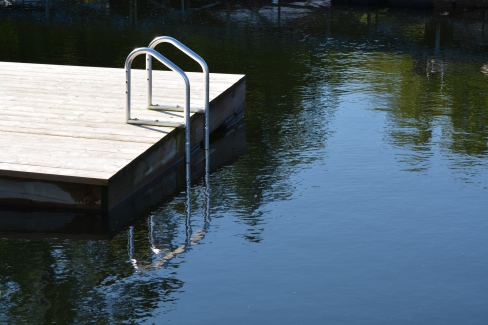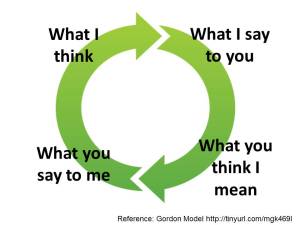Why is Reflective Listening so difficult? And so important to clinical practice?
We all want to be understood – that’s the major impetus for any form of communication. And the trouble is that there are so many ways that communication can go wrong. In Thomas Gordon’s model of Parent Effectiveness Training, it’s evident how easy it is to misunderstand the intent and/or the content of another’s communication as our messages are coded and decoded through a series of filters:
Reflective listening, considered to be THE foundation skill of Motivational Interviewing, is like offering a hypothesis about how we perceive someone else’s meaning. Reflections are offered in the spirit of “I’m listening to understand (not to judge, persuade or correct)”. True, unadulterated listening is rare, refreshing and affirming. It communicates respect and builds relationships. It goes “below the surface” and articulates the underlying meaning – thoughts, feelings, ideas, hopes, values – that a person may be expressing.
Bonus tip: Reflections can sound contrived when they are prefaced by “stock” phrases such as:
“What I hear you saying is…”
“So you are saying that…”
“I am hearing that…”
I think practitioners use these phrases to (a) buy time while we’re busy figuring out what exactly we’d like to reflect; and (b) because we’re concerned that we might be ‘putting words into the other person’s mouth’. However, when we offer reflective listening statements with a spirit of partnership, acceptance, compassion and collaboration, it’s OK if we’re a little off-target with respect to the other person’s meaning, affect or intent. Our reflections can still evoke further elaboration.
Also: it might seem counter-intuitive, but reflections are more genuine and engaging when we just come right out with a statement (not an question, and no ‘stock phrase’ preface):
“You wish that…”
“It’s frustrating because…”
“It would be nice if…”
“You’re not too happy that…”
Understanding is at the heart of effective communication. It’s also key to building trust, rapport and safety. The saying: “I learn what I believe as I hear myself speak” articulates the power of dialogue in fostering insight and enhancing motivation for change. Reflective listening holds up the mirror.
Related articles:
Reflective Listening: The Most Powerful Tool in the Tool-box?



